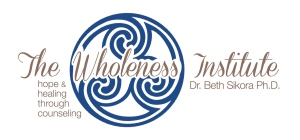
A friend greeted me by text this morning with a message of hope – and humor: “I hope you’re staring your day with a full cup”. This is a friend I appreciate a great deal for the hope she holds onto as I also try to, that hope will get us through. That doesn’t mean that we always get what we hope for, but that we are, in the end, always protected and strengthened to get through what we must.
During this time when we are dealing with so much angst in this country, and Covid at the holidays with numbers taking huge jumps, we may be wondering just how we are to have hope and remain at all positive. Hope is one of the only things I think we do have. If one has a spiritual connection, I do believe it may be easier. But hope, in the end, is the mental or spiritual or emotional trust that something will happen or come to be in the future. I saw a picture when perusing the Internet looking for some different views of hope. The Christian view of hope at this time of Advent is that of focusing on light instead of darkness; the Judaic of Hannukah is hope in the midst of darkness; both essentially saying that to hope is to trust that there will be light, brightness, change, or answers once the day is again well-lit or the time of difficulty passes.
Henri Nouwen wrote of radical hope: Essentially, he wrote, it is waiting with openness and trust – (wow, hard to do!) that “something is happening for us that is far beyond our own imaginings”. I have to tell you, that is not something I can do daily – leaning far beyond into a Source, for me a source of strength from my God despite anything that one might encounter in life. I may seek to be that strong, but it is a daily choice.
And that’s the funny thing about hope, it is a choice. I was recently speaking with two different friends, both of whom are in the midst of very difficult times in their lives for very different reasons – one a relationship and one an illness. And I was reminded how hard it is to hope in the midst of those dark seasons. When all one has hoped for or believed to be true is suddenly turned upside down, leaving us bereft, questioning the reality of all one believes or holds sacred in life or a relationship. So how to change and lean in more fully to hope?
- Live your life today as though it were your last day. Another way of doing this as suggested by some coaches is to first write your obituary. Write what you want your life to have meant. And then – live it in some way. For me, that is continuing to care about people day by day. And something as simple as treating Finley, my dog, with care even when I’m tired and don’t want to play – but he does. Reach in to find the willingness, and reach out to care.
- Exercise patience when the change comes slowly. I went through burnout in a previous career many, many years ago. Eventually I took a leave of absence at the advice of my therapist. It was a very difficult thing to do, but I stayed home until I actually felt in some way that I wanted to go back. It was an achingly slow process. And each time I asked him if I should go back, he looked back at me and asked, “Do you want to?” He told me to go back any earlier would undo any good the time away was doing me. During that time I read, took walks, slept in, cooked for loved ones, prayed, journaled. All of that helped me to come back slowly. So eventually I was able to say to him, “I think I’m ready to go back”. And I meant it. But hope in the middle was seen in such fine splintered improvement – nothing big, like a log. No, only a splinter at a time. Yet splinters add up. Ever started a huge roaring fire and couldn’t get it going without the kindling wood? Not so easy – but a little bit of the right small pieces can build a lasting fire for warmth.
- It takes daily living in hope to finally feel it. It can be unbelievably difficult, but hope demands we keep moving before we feel it. The paradox I’ve found to be true is that I must act on hope, trusting I will eventually feel it, and by the time I do the most difficult times have finally passed. I want to feel it before and during the difficult time. But while I consciously hold onto the thought for it, the feeling comes after recovery from cancer, after one has finalized the divorce on all levels and gone on to live a new life, after one’s energy rebuilds after surgery or chemotherapy, after one has built the business or rebuilt what went wrong, after the pandemic has ended. Or has it? Isn’t hope the living – the belief things will get better…and the time we can see the results the effect of the hope? Think about how that might apply in your life. You might be surprised to find you have some hope – you’re just not acting on or living it.
Make no mistake, living a radical hope in which one believes life will improve beyond one’s expectations, is not easy. But it will give one some modicum of peace in the moment. Despite the migraines, nausea, sleepless nights, or worried days we may also experience, hope says but this will change and improve eventually. So, through these days of Covid-19 numbers exploding, or personal crisis, or preparation for Christmas or through Hanukkah or as one tends the crops before Kwanzaa–may December be a month of radical hope for you.
Take care,
Dr. Beth










